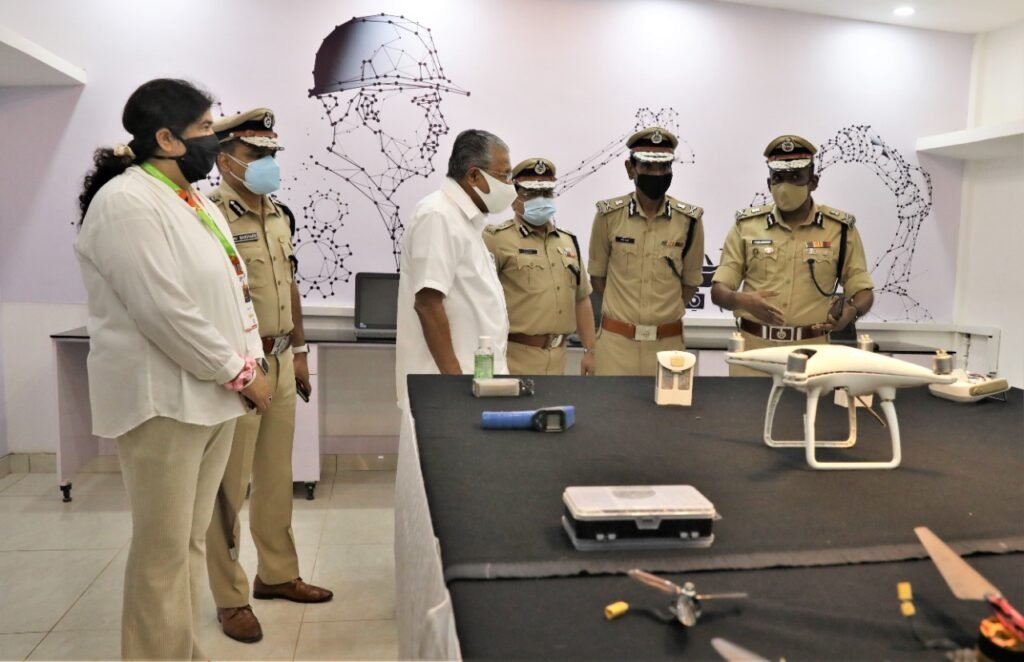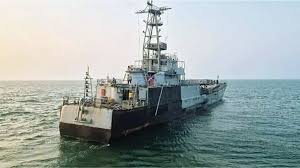National Academy of Coastal Policing Campus in Dwaraka, Gujarat
The National Academy of Coastal Policing (NACP) has recently made significant progress with the laying of the foundation stone for its new campus in Dwaraka, Gujarat. This development, inaugurated by Amit Shah, the Union Minister of Home Affairs, marks a crucial step in bolstering India’s coastal security infrastructure. The NACP aims to train and equip police personnel in effectively addressing security challenges specific to coastal regions. This article delves into the details of this significant event and sheds light on its importance for students preparing for government exams.
The event witnessed the esteemed presence of Amit Shah, who inaugurated the foundation stone laying ceremony of the National Academy of Coastal Policing campus in Dwaraka, Gujarat. This initiative showcases the government’s commitment to strengthening coastal security and developing specialized training facilities for law enforcement personnel.

Why this News is Important:
Strengthening Coastal Security
The laying of the foundation stone for the National Academy of Coastal Policing campus signifies the government’s efforts to strengthen India’s coastal security infrastructure. This initiative acknowledges the unique challenges faced by coastal regions and aims to provide specialized training to law enforcement personnel.
Addressing Security Challenges
India’s extensive coastline poses various security challenges, including piracy, smuggling, and illegal activities. The NACP will equip police personnel with the necessary skills and knowledge to effectively address these challenges and maintain law and order in coastal areas.
Enhancing Interagency Coordination
The NACP’s establishment will contribute to better interagency coordination among various security agencies responsible for coastal security. This collaboration will facilitate swift response mechanisms and information sharing, thereby enhancing the overall security apparatus.
Historical Context:
The need for bolstering coastal security measures gained prominence after the 2008 Mumbai terror attacks. The attackers infiltrated through the sea route, exposing vulnerabilities in India’s coastal defenses. As a result, the government launched the Coastal Security Scheme, which aimed to strengthen surveillance, establish coastal police stations, and enhance the capabilities of law enforcement agencies.
Key Takeaways from the National Academy of Coastal Policing Campus in Dwarka, Gujarat:
| Serial Number | Key Takeaway |
|---|---|
| 1. | The NACP’s new campus in Dwaraka aims to enhance coastal security measures in India. |
| 2. | It will provide specialized training to police personnel deployed in coastal areas to address security challenges. |
| 3. | The academy will focus on combating piracy, smuggling, and other illegal activities in coastal regions. |
| 4. | The establishment of the NACP highlights the government’s commitment to bolstering coastal security infrastructure. |
| 5. | The academy will contribute to interagency coordination and strengthen surveillance along the coastline. |
Important FAQs for Students from this News
Q: What is the National Academy of Coastal Policing (NACP)?
A: The National Academy of Coastal Policing (NACP) is an institution dedicated to providing specialized training to police personnel deployed in coastal regions of India to address security challenges specific to those areas.
Q: What is the significance of the National Academy of Coastal Policing?
A: The establishment of the NACP is crucial in enhancing India’s coastal security infrastructure, as it aims to bridge gaps in security measures and equip law enforcement personnel with the necessary skills to combat piracy, smuggling, and other illegal activities along the coastline.
Q: What are the key objectives of the NACP?
A: The key objectives of the NACP include strengthening coastal security, enhancing interagency coordination, improving surveillance measures, and contributing to the overall safety and security of coastal regions.
Q: How does the NACP contribute to interagency coordination?
A: The NACP acts as a platform for better coordination among various security agencies responsible for coastal security. This collaboration facilitates efficient sharing of information and swift response mechanisms to counter any security threats.
Q: How does the establishment of the NACP benefit students preparing for government exams?
A: The NACP’s initiatives and developments are relevant for students preparing for exams related to positions such as police officers, defense personnel, and civil service positions. Knowledge of coastal security measures, interagency coordination, and related historical context can be beneficial for exam preparation.
Some Important Current Affairs Links


















